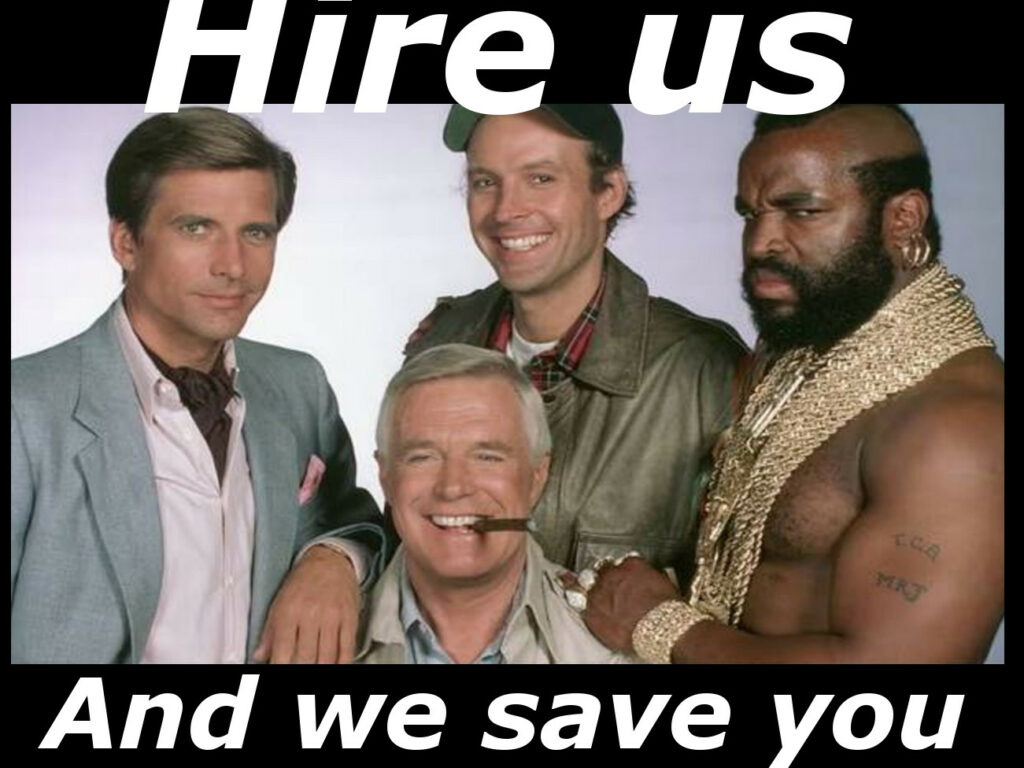
The question is how well the protection works on a collective basis, or whether it works at all. It’s a sensitive issue, like anything outside of political correctness, and very few are open-minded about it. But I venture to challenge the dogma about the supremacy of the role of public ownership.
Because it’s obvious. If defense against criminals and terrorists is so important, as it clearly is, then there should be not just one defense force, but an infinite number. Yet, this is not the case, and it’s super weird to me. What could be the reason why, despite the obvious benefits, the authorities criminalize those who would really effectively protect civil society?
This is very incomprehensible especially knowing that police officers are usually far from the crime scene when it happens. It’s quite obvious, even elementary school students know that we can’t have a policeman next to every potential victim to protect him 24 hours a day. That’s what the bodyguards are for, but this is where all private initiatives regarding the protection itself come to an end.
This is a fundamental problem with state involvement, namely that the state has no competitors. There is no reference point, and it is impossible to determine that if something is what it is, compared to what. After all, in the public sector you can always say that more money needs to be spent on it, tax revenues need to be increased to make it better. But compared to what?
The competition sphere regulates this precisely by default. And this is customer satisfaction. If customers are dissatisfied with the given product or service, they migrate to the competitor. And this exactly indicates that it is not good.
In fact, the century after their appearance, the publicly owned state already has palpable harmful effects, which are far from over.
The question arises, what is the function of the state? States were originally created for protection, as monarchies were gradually replaced by parliamentary democracies, privately owned states by publicly owned states, so the personal income tax had to be introduced, which was barely 3% a hundred years ago.
A hundred years ago, public morale and public safety were incomparably better than today, even though today in many countries total taxes can reach 40%. So the price of protection has increased, but its quality has deteriorated along with the standard of living, public safety and public morale. Therefore, the state cannot perform the tasks for which it was created in publicly owned societies, but it performs all other tasks. Everything is already taxed and it will become more and more so.
The process is unstoppable, because the tendency of the state is growth. There will never be enough police on the streets, the fences will never be high enough to eliminate crime altogether. There will be always room for objections for increasing taxes and further law imposing.
So, let’s look at what politicians always use to legitimize their decisions, namely the “public interest”.
Well, SOCIETY HAS NO INTERESTS, only individuals have interests, so nothing can be useful or useless for society.
Of course, there are things that may be in the interest of certain large groups, for example, reducing crime in the country, this is in the interest of quite a few people, so this is called “general social interest”.
“. But what would happen if crime were to be completely eliminated in a country? An amazingly large amount of people would lose their jobs! Policemen, judges, gunmen, security services, fence, lock, padlock, security grid, alarm equipment manufacturers and distributors and everyone who supplies and works for them, who builds the buildings, etc. A serious industry is built on the fight against crime, so it is in their interest that crime does not stop!
Obviously, the cessation of crime would be a useful thing for society and these people who lived from it would all find work in other fields over time, but it is certain that they would not consider this a useful thing when they lose their jobs.
A society is divided into a million spheres of interest, within which the interests of a million individuals collide or meet. This is obviously why there is a multi-party system in a supposedly free country. Even within a party, the members have a lot of interests, which, even though they are united in a party, still remain individual interests.
But if we take that, the state has a direct interest in the mere existence of crime, because what else, if not crime, justifies the necessity of the state as such. This is why crime NEVER stops, while law enforcement is a state job. Those who make a living from law enforcement and law enforcement are all public servants or state-mandated corporations. So we can take this to mean that crime is in the state’s interest as long as it does not pose a direct threat to the state.
Let’s see, when have we seen a policeman prevent a crime? Except for action movies, almost never! They only go out and “take action” afterwards, that is, after the crime HAS HAPPENED!
Those who could prevent the crime would be the victims, if they were not FORBIDDEN! Prohibited to carry weapons for self-defense. Millions of statistics prove that in the USA, where people can and do carry guns, there is far less crime than where they don’t, so they can’t. There is an inverse relationship between gun ownership and crime, and even if only the news of school shootings reaches Europe, this fact will not change. That is, how many crimes are committed with legal guns in the USA, but not even by chance how many crimes are PREVENTED by carrying guns! What do most states in the world do about it? They ban the carrying of weapons for law-abiding citizens, thus favoring law-breaching criminals! So the ban on carrying weapons does not apply to criminals, because they break it!
There can be no more logical explanation for this than that it is in the interest of the state to have crime and criminals! These can then be used to scare the citizens, and for the sake of their “protection” they hand over their money. This reminds me of the mafia, but they are less harmful because at least they don’t ban the carrying of weapons for anyone. Moreover, the protection of the mafia is really protection!
In most cases, however, what happens is that the state protects the criminals. What would happen to these criminals if there was no state? The armed populace would hang them on the first tree, or chase the criminals from every settlement back into the wilderness. However, as criminals commit their heinous crimes against victims made defenseless by the state, state police protect the criminals from the wrath of the public. What’s more, the more heinous and vile a crime someone commits, the more protection they enjoy, even in prison, against their fellow inmates. But nothing protects the victims. So the state, with laws, ELIMINATES the completely natural defense mechanism of society. I can compare this to the body with an immune deficiency, which is killed by the first cold.
In conclusion
With the social dominance of public property, the ideologization of society is inevitable. In addition, public society, which is almost always mass society at the same time, infantilizes its citizens by punishing responsibility and rewarding irresponsibility. When everything was privately owned before the modern era, including the state itself, private property rights regulated everything. Thus the legislation was property rights oriented, rather than ideology oriented. What is ideological oriented? Everything that exceeds the reality of individual, the only existing reality, must be fiction or fantasmagory, thus ideological. Today, legislation operates entirely on an ideological basis, and the goal of all ideologies is utopia, the end result of which is the dystopian world and dystopian society in which we live. This rules also apply to defense forces.
Thanks for reading!

